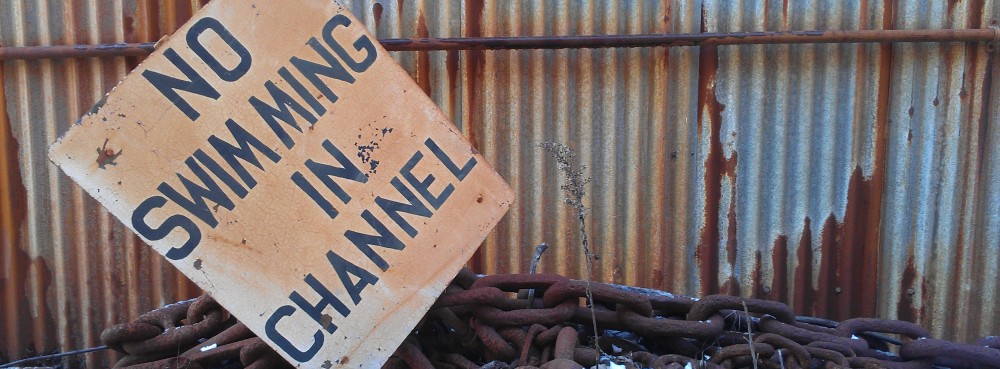Martin Dugard’s book chronicles the three circumnavigations captained by James Cook in 1769-1780. On the first of these adventures, he is credited with circumnavigating New Zealand, mapping the eastern coast of Australia and discovering the Great Barrier Reef.

Endeavour slammed hard into a coral reef and ground to a violent halt. A mighty surf pounded against the beleaguered ship, wedging her wooden hull tightly onto the reef. All hands were immediately summoned on deck by a mate’s frantic cry of “Up every soul nimbly, for God’s sake, or we all perish.”
The crew took their cue from Cook and remained calm throughout, pumping the hold in fifteen-minute shifts. Cook ordered everything expendable of great heft heaved overboard. Six of the twelve cannons were dumped, twenty-five tons of fresh water, tons of rocks and ballast. “Casks, hoops, staves, oil jars, decayed stores,” wrote Cook of other items surrendered to the Pacific. And still she stuck fast.

This was an alarming and terrible circumstance. However when high tide arrived, “At 20 minutes past ten we hove her into deep water”. Soon Endeavour was out of danger and heading for land. Cook and the People removed their personal belongings from the ship and prepared to camp on shore. They were startled to find a large chuck of coral had pierced the hull but held fast without pressing all the way through. If that had happened, the ship most surely would have sunk.
For two months, the crew got a taste of what life would have been like marooned in this hostile land. They seined fish, ate kangaroo and sea turtle, marveled at flying fox. They fought the local Aborigines, who set fire to the brush surrounding Endeavour‘s campsite in one memorable skirmish. Cook himself shot an Aborigine for trying to steal sea turtle meat.

Finally, it is interesting note that James Cook is considered the inspiration for both Captain Hook (J.M. Barre’s Peter Pan) and James Kirk (Gene Roddenbury’s Star Trek.



